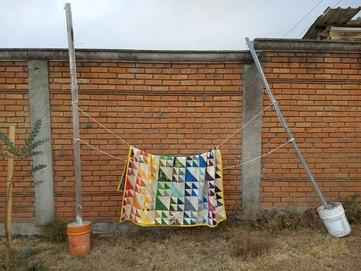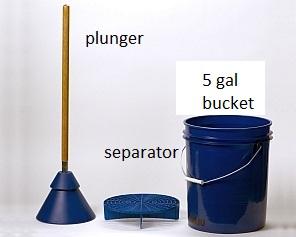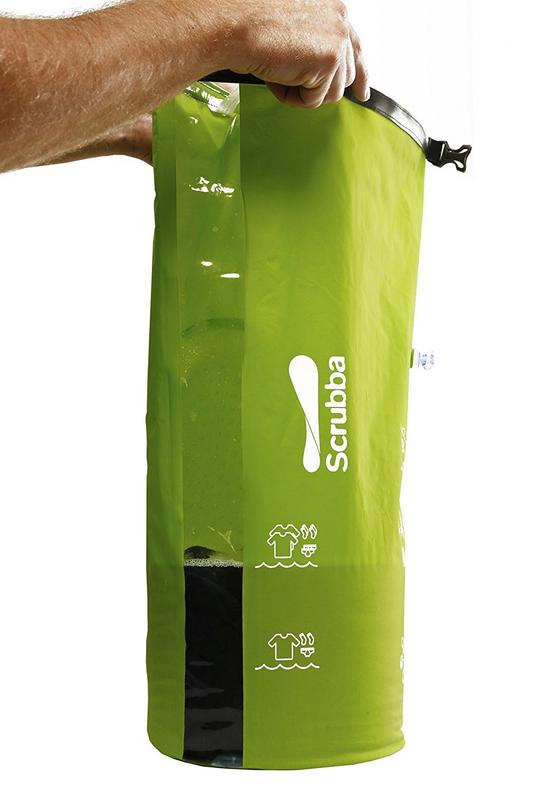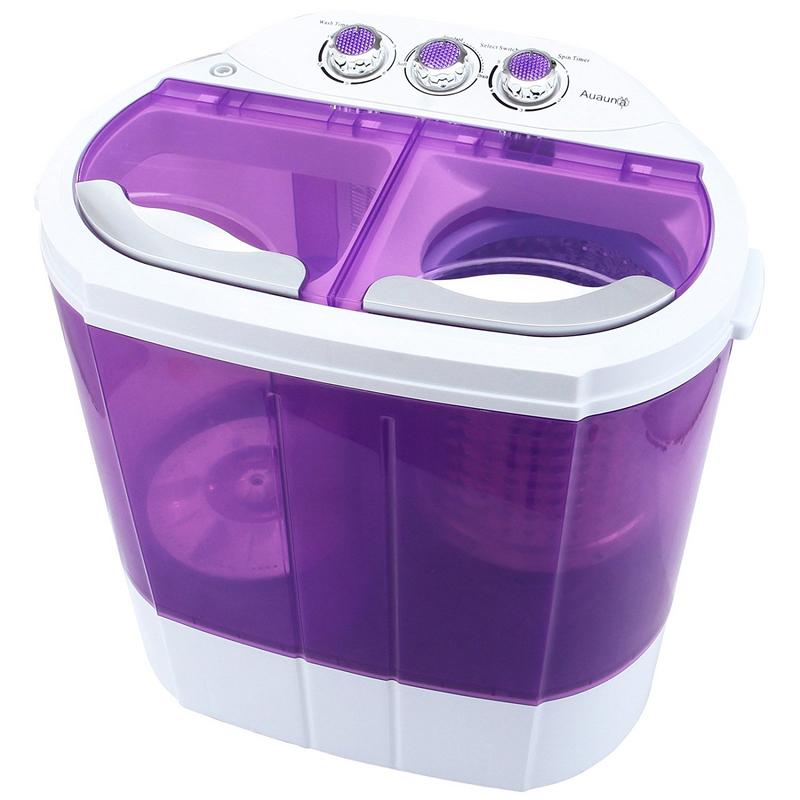
How to do laundry by hand
If you live in a van, RV or otherwise without a washing machine, if you’re traveling or spill something on your clothes at work, you might need to do laundry the way people have been doing laundry for 99.99% of human history: by hand.
Doing laundry by hand can involve buckets, bags and washboards. Or you can just plug a sink or bathtub and use your hands. All of these methods, as well as “traditional” washing machines, are graywater-friendly.
We like our bucket system, though if we had a machine we’d use it in a heartbeat! Our bucket+plunger really is a step above a sink, though:
Benefits:
- the plunger moves water through the clothes with more force than we could do with only our hands so our clothes probably get cleaner
- this is probably gentler on clothes than washboards or machines
- the separator might help, but I imagine the dirt is pulled back up through the clothes with the water when I’m plunging. It would be interesting to test this with a clear bucket
- since the plunger is likely the best part of the system, you can buy that piece alone for $25. There’s a version on amazon, too.
- we can use the same water a few times, washing the least-dirty stuff first and re-using both wash and rinse water, then when wash water gets murky, turn the rinse water into wash water, etc.
Bummers:
- it’s probably the biggest handwashing laundry option (other than a bathtub or huge basin, which we don’t have) but it’s still not big enough to wash a blanket. We have washed our sheets, one at a time, with reasonable success
- there’s no wringing function and our clothes end up so wet that they can easily get stinky before they dry. We can empty the bucket and plunge some more, pour liquid out, repeat, and it helps a little. But this system works if you can hang your clothes out on a sunny day. Watch out for wind and rain:-)
Seriously travel-friendly possibilities include the Scrubba bag which is wonderfully small for traveling, but too small for even a sheet. At least it seems like it - anyone out there have experience?
I’ve fantasized about a compact electric option like this but until we get a bigger (or better organized) van, I don’t think it’s worth the space. That is to say, we’d probably be glad to use it in Mexico (and it should run off the solar panels) but once it’s time to pack everything up into our van and leave, we might not find room for it.
Truly by hand, we use this combination on a regular basis:
- rinse in running water from the tank (esp if this is dog pee or something similarly gross)
- hang laundry on vehicles, clotheslines, the outhouse, etc to get rained on
- spot clean with rags
- hope the sun shines hot and finishes the job
Whichever tools and containers, two essential tips
- Use as little soap as possible so you don’t have to rinse, rinse, rinse, rinse…
- Wring (by hand or however) as much as you can stand so your clothes have a chance to dry before they stink of mildew.
And don’t forget to reuse the water!
3 Comments:
August 11, 2018
Phillip’s next project should be making a wringer! https://www.youtube.com/watch?v=2tTltc5GpL4
August 11, 2018
My first year in grad school, when I was carless and far from any laundromats, I washed all my laundry in the bathtub. I’m sure that I had it easy compared to you: my primary occupation was sitting at a desk all day, not getting very dirty; I had no pets (thus, no dog pee or puke); I had running hot water. And probably when I made my monthly-or-so trip home to visit my parents, I took dirty sheets and towels. I’m reminded by European family members that people used to change clothes only once a year. No desire to return to that!
August 12, 2018
Great idea on the wringer! And probably fun for him to make, too. Yeah, Beth, we figure most people don’t wash their bedding worldwide, esp since many people don’t use washable.bedding to begin with! But maybe some of them don’t also sleep with animals? Certainly we’re not the first to have worms and bugs in our bed! Hot water would really help. Phillip has a passive solar water heater plan:-)


